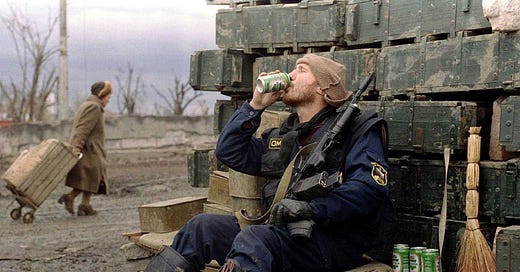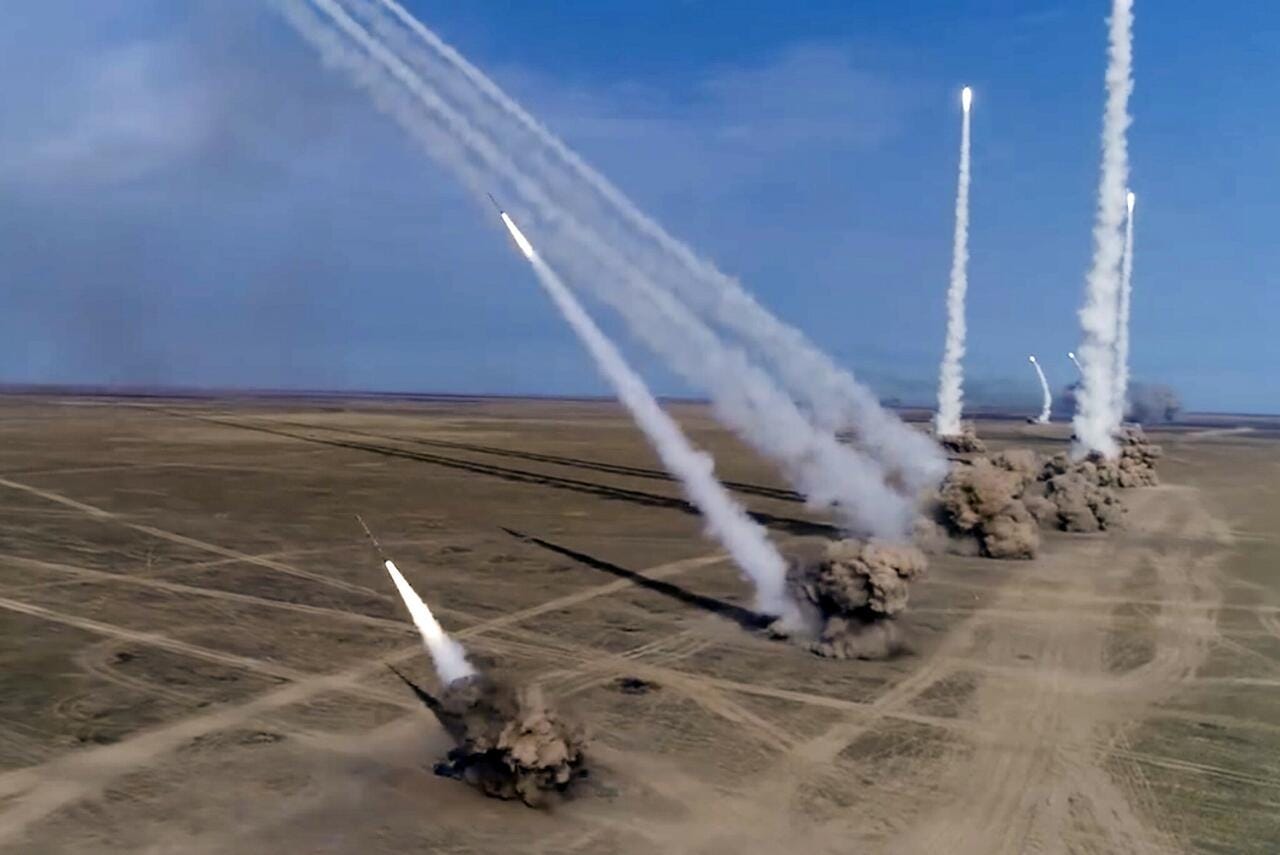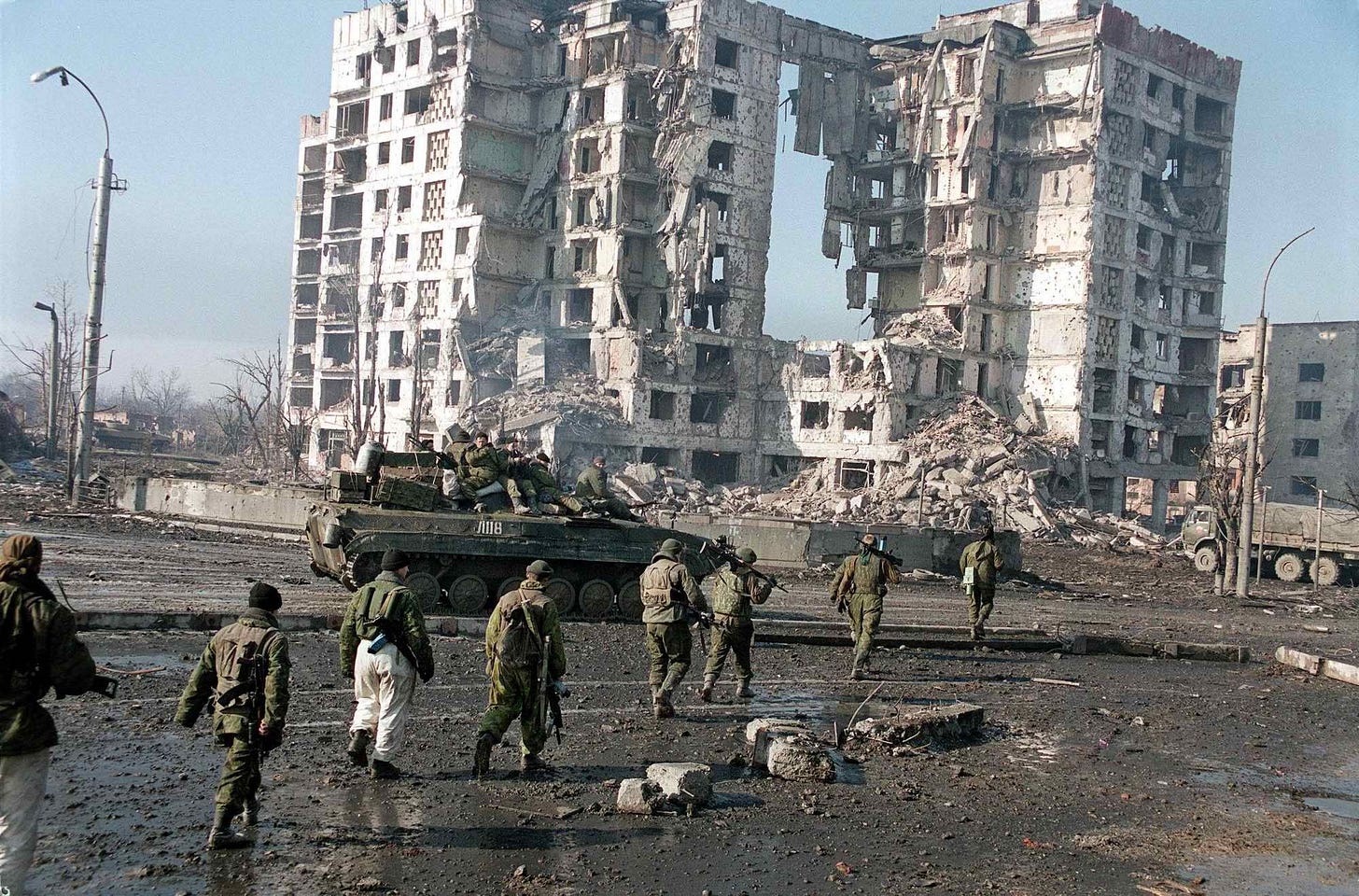Predictions of Warfare in the Twenty-First Century - Ernst Jünger
A fragment from An der Zeitmauer (1959), Ernst Jünger's predictions for war in the 21st century. This is helpful for understanding titanism and his essay “Prognoses”.
Prognoses for the Twenty-First Century - Ernst Jünger (substack.com)
Regarding the fate of man, particularly as a state-forming, political being, various prognoses are possible, including the following:
1. There will be great destruction. The machine is smashed or comes to a standstill, be it by wars or in other ways. There is a lack of means, perhaps even the inclination, to rebuild it. The Veil of Maya has shifted. A greatly diminished population, with new ideas and a different economy, appear as post-catastrophic beings. They are more powerful, more natural, because the eradication has affected precisely those areas where homo faber has shown itself most sharply. It has, as so often repeated in natural history, led itself ad absurdum by hypertrophic armaments. This prospect is the least likely.
2. World unity is constituted by treaties, whether by peaceful agreement, under coercion, or both at once. This requires a supreme body. This can be achieved:
a) By rationalisation in the form of consolidation: The states renounce part of their sovereignty. They are dismantled in favour of society, the societas humana. Armies become police forces and the major combatants will manage world divisions. Like gold, they are stored in depots without appearing de facto, and guarantee order existentially. Competition is eliminated in the field of war as well as in economics. Forms and means are perfected, state plans are replaced by earth and cosmic plans.
b) By a third world war without comprehensive consequences, outlined above. A power remains in possession of sovereignty and the appropriate equipment. It cedes parts of it as it sees fit. It must remain a state. In World War I the monarchies were eliminated, in World War II the nation states were eliminated, and in World War III one of the great continental spaces will remain. The order thus achieved would be weaker than that achieved by evolution, and the risk would be enormous.
c) Through overexertion. Increased repetition and internal weakening interact in such a way that machine parts wear out or explode. Pressure, suppression, propaganda, spending on armaments to the detriment of the standard of living, threats, panic, unrest – all these would kill one or more partners and eliminate them from competition. The great slogans lose traction. The result is a more or less emphatic pénétration pacifique.1 In principle, all wanted the same thing. Force works from the forward pressure, from the future result.There lies the unity of the process, not in understanding. The wisest ideology is not the best, but that which follows the earth's current most easily, harmonizes with it.
d) By gaining position. Here warfare, like chess, approaches the pure acts of intelligence. The commander recognises his strategic superiority and deduces the consequences, as in some Renaissance trading. The best positions are tangential, flanking – in principle: falling out of the system. They lie outside the contested object.
https://en.wikipedia.org/wiki/Peaceful_penetration






